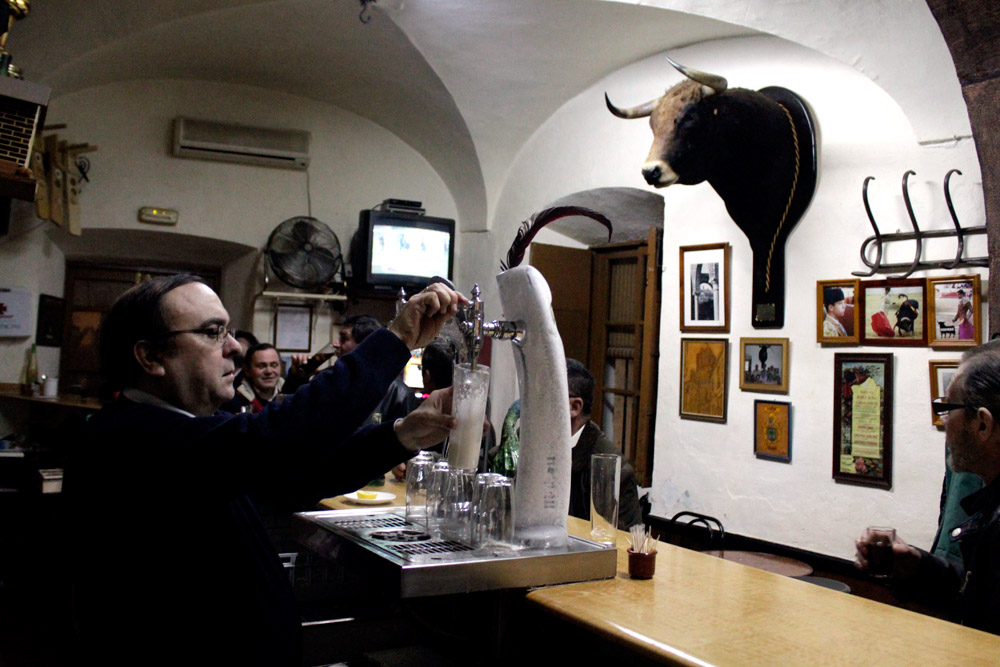The name Cachipe is a family one – from a gypsy dialect that means a good person. The name came from the owner’s grandfather and the owners have since done everything to make the restaurant true to its name.
Being good people and friendly toward the clientele creates the many Jerez regulars who frequent Cachipe.
The son of the owners and cook Fernando Rubio Gañáñ says that if you ask people in Jerez about Cachipe, 90 percent will know the bar. He says this shows how important it is to the city. The tourist office will often direct visitors to Jerez for a quick bite to eat before they go to their next church or monument to visit.
“We are open people to the clientele,” Gañáñ says. (“Somos personas abiertas al clientes.”)
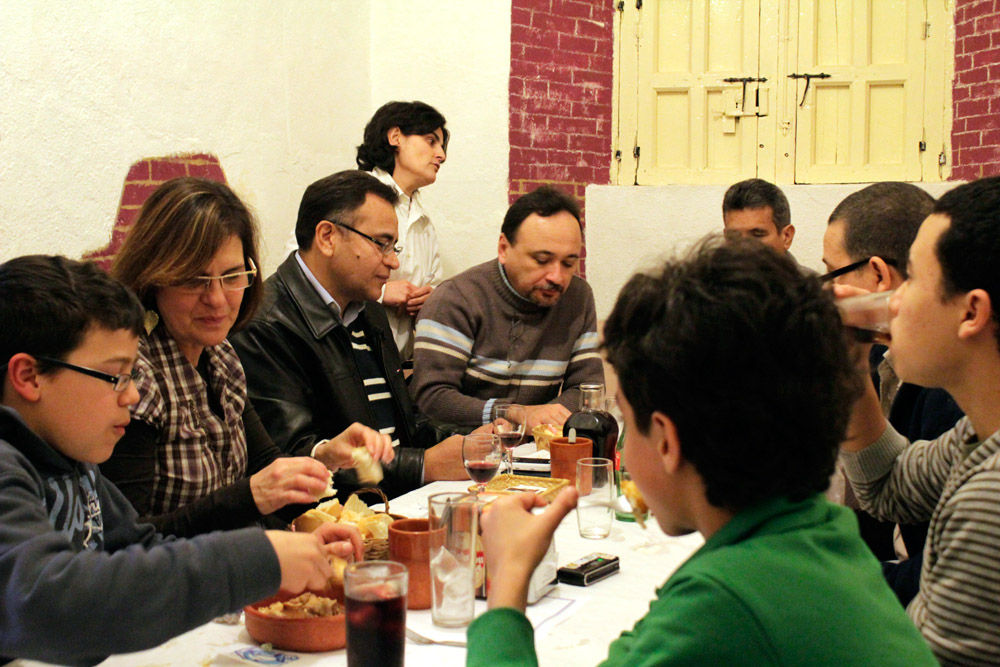
There is no menu of the day here. No tablecloths. Napkin dispensers adorn each of the tables. Cachipe serves raciones (portions of food to share) as well as bocadillos (bread roll with meat, like a big a sandwich). An order of calamaris, tortilla, or some other shareable plate comes with a cup full of forks: no appetizer plates are necessary.
The back room is often filled with big parties passing raciones, as well as pitchers of beer and sangria. At the end of the night, the bill is often as low as 5 euros per person.
When the bar opened in 1981, it was far from the bustling crowd of people it is now. Originally the bar attracted an older crowd who came in for a small glass of wine (vinito pequeño) and a small, free appetizer. The lack of more patrons could have had to do with its name at the time: the Bar de lo Comunista only attracted a certain clientele.
“At the beginning, no young people entered. Older people came in who did not eat food.” (“Al principo, no entraba gente joven. Entraba gente mayor que no consumía comida.”)
Then, one day on a weekend, a group of young people entered. Gañáñ’s father and owner, Fernando Rubio asked, why haven’t you come before?
“We thought that this still belonged to a political party.” (“Nosotros pensabamos que todavía esto pertenece un partido político.”)
Once Rubio cleared up the misconception that his bar belonged to the communist party, the young people came again ordering beer, wine and copas (departing from the small wines of the older men) and the name was soon changed to Cachipe.
Crowds of people in their 20s and 30s came and began patronizing Cachipe. The bar expanded and started serving food.
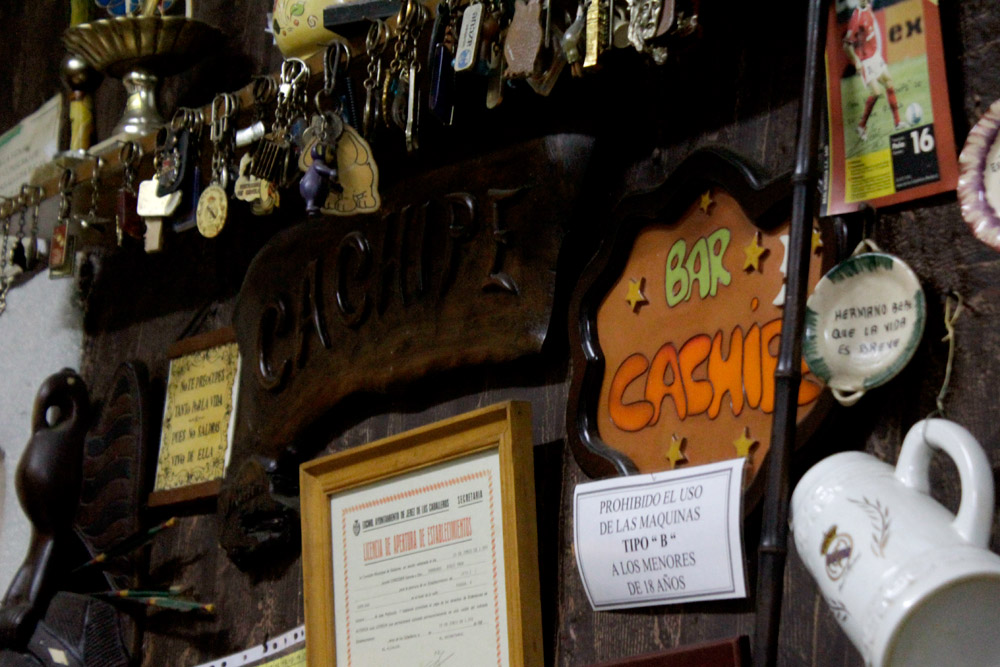
Often foreigners will come, enjoy Cachipe, and later mail back small souvenirs. The shelves are now a museum created by former bar patrons. Each day a cycle of Jerez regulars will come in – the older crowd and their small wines as well as families and friends who come in later for drinks or dinner.
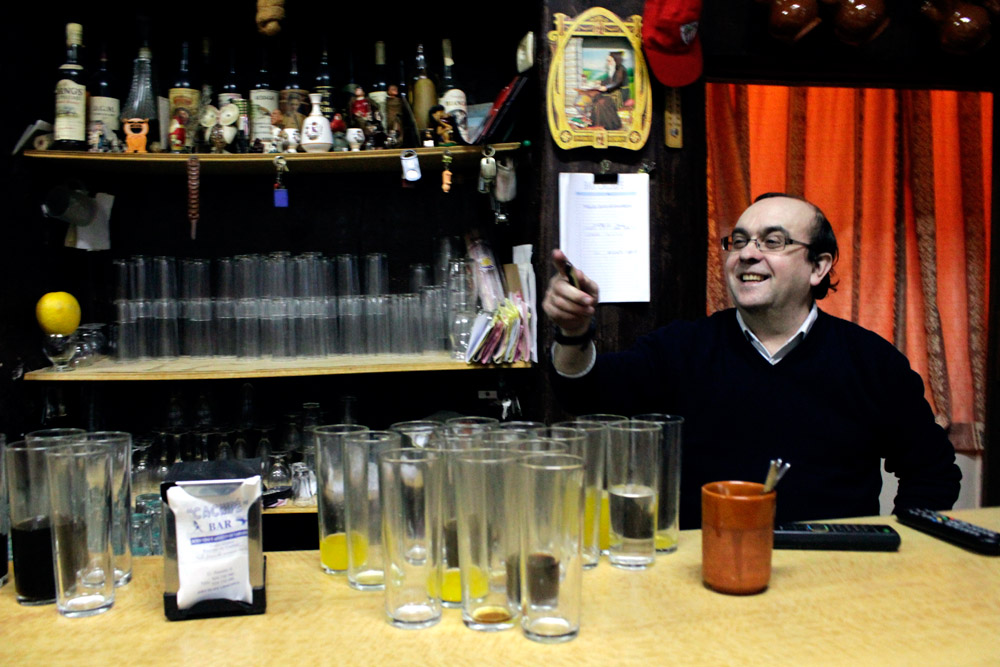
From behind the bar, Rubio pours drinks and talks to his regulars. His spot behind the bar faces a bull’s head – a gift from a friend. Rubio’s friend has a son who is a bullfighter. He killed the bull, kept the ears and gifted the head to Cachipe. The head adds to the eclectic atmosphere of the bar.
Francisca Gañáñ serves the tables in back – attentive to everyone’s needs. She is more than a server – she is a friend to these people and knows many of them by name – especially the ten football sala players who make up Pelotas Al Viento (the Cachipe indoor soccer team).
On this Friday night, Pelotas Al Viento celebrates their friend’s birthday at a long table in back. Francisca Gañáñ knows the team well and brings out their photo, which now hangs on the wall, to show them years ago when they first started playing together.
It’s Jose Antonio Caballero Cascante’s birthday. He says he often comes from his village of Valle de Santa Ana to Cachipe on the weekends to meet up with his team. He says it’s tradition.
“It’s a very nice, good place with good people and service, cheaper than other places,” he says. (“Sitio muy bueno, muy ameno, gente muy bueno, más barrato de otro sitios.”)
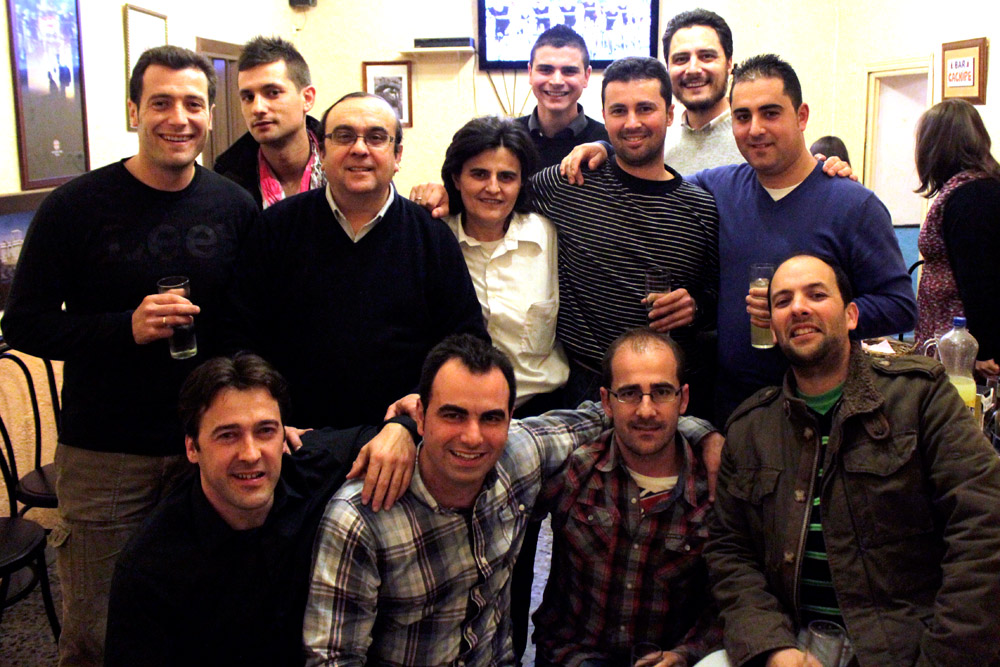
After their meal, the team takes a photograph. Francisca Gañáñ and Rubio are in the center. The team starts chanting their traditional football songs as they drink copas, enjoying this Friday night with good people.
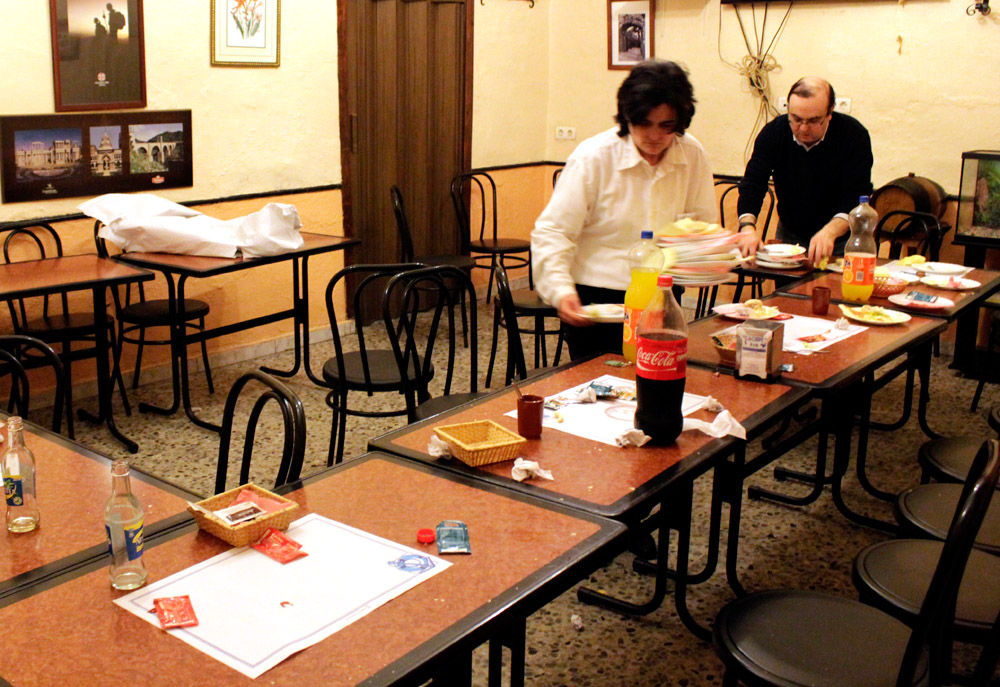
Francisca Gañáñ and Rubio clean up after a party
Didn’t get enough footballers?
Here is Pelotas Al Viento’s toast. Each football club has their own toast:
“For a woman, no. For the bottle ….” (“Para la mujer? NO! Para botella …”)
And this toast ends with a typical toast of Spain:
“Arriba, abajo , al centro, adentro.” (“Up, down, center, inside.”)
[audio: http://lauraeshelman.me/wp-content/uploads/2011/02/Cachipesong.mp3]
Listen to the Pelotas Al Viento sing a traditional football song.
